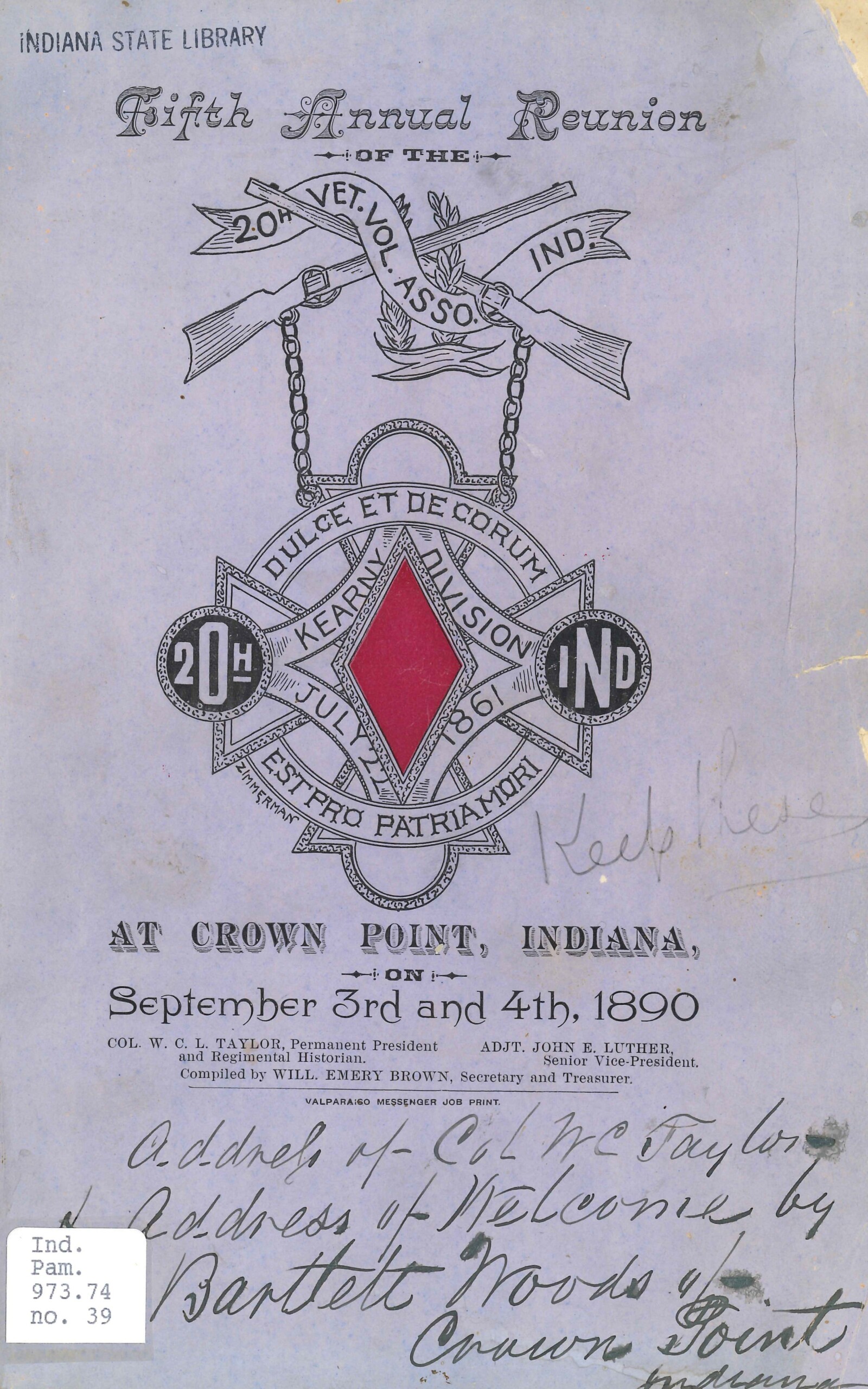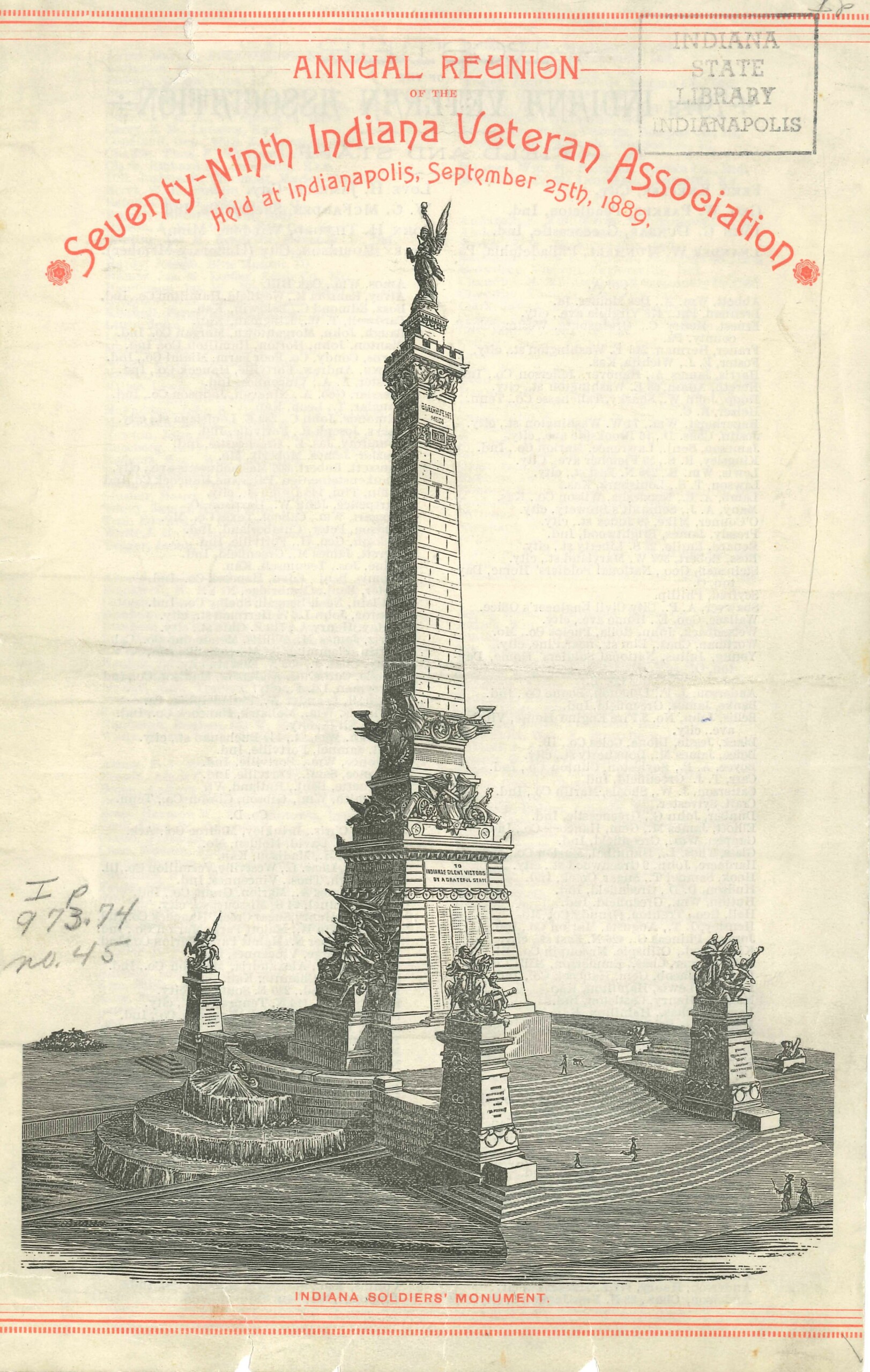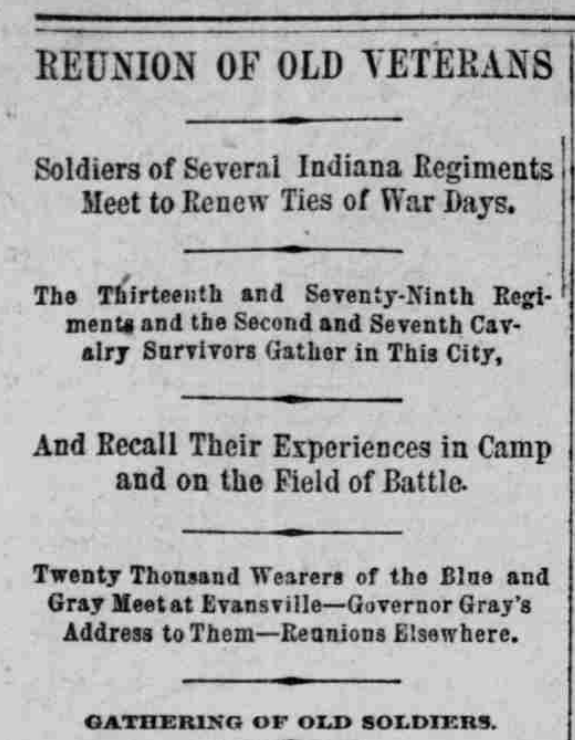After the close of the Civil War, Union veterans’ organizations were formed, such as the Grand Army of the Republic. Both the national and state levels of the GAR held regular meetings called encampments, and those were well-attended by members from local posts. At the same time, individual regiments began organizing less-formal reunions of their veterans. Often reunion organizers decided to meet in late summer when men might have free time in conjunction with their county fair or even during State Fair week activities at Indianapolis.

Fifth annual reunion of the 20th Indiana Vet. Vols., held at Crown Point, Indiana, Wednesday and Thursday, Sept. 3rd and 4th, 1890. Indiana Pamphlet Collection [ISLO 973.74 no. 39].

Program of annual meeting. Roster. Seventy-ninth Indiana Veteran Association. 1889. Indiana Pamphlet Collection [ISLO 973.74 NO. 45].
Keep trying searches with the regimental number spelled out in words (e.g., twenty-first, twenty-second, twenty-third, etc.) and also re-do the search as an ordinal number (e.g., 21st, 22nd, 23rd, etc.) which may give different, but equally useful results. For more information about items in the Indiana Collection or tips on finding regimental reunion documentation, please contact the Indiana State Library at 317-232-3670 or “Ask-A-Librarian.”
This blog post was written by Indiana Division librarian and state documents coordinator Andrea Glenn.

